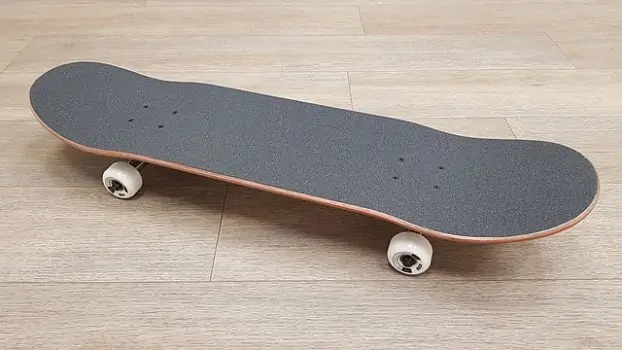-
3-minute read
-
16th November 2020
Word Choice: Board vs. Bored
The words ‘board’ and ‘bored’ sound the same, so it can be easy to mix them up, especially since both terms have multiple uses. But these words have different spellings and meanings, so it’s important to get them right!
To make sure your writing is error free, then, check out our guide.
Board (A Piece of Wood or Organising Body)
As a noun, ‘board’ has a few meanings. One is to refer to a thin, flat piece of wood or another hard material, typically used for a specific purpose:
The teacher wrote the answer on the board.
We need several boards of wood to fix this hole.
This sense of ‘board’ is often used in compound words that specify its use or appearance, such as ‘diving board’, ‘whiteboard’, or ‘chess board’.

(Photo: wikimedia/Cekay)
‘Board’ can also refer to a group of people who manage an organisation:
The board of directors decided to change the charity’s name.
And, finally, ‘board’ is sometimes used to refer to food provided with accommodation, usually in the phrase ‘room and board’.
Board as a Verb (Get on a Vehicle)
The verb ‘board’ usually means ‘get on or into a vehicle’, such as a boat, train, or plane. For example, you might see it used like this:
You must check in your luggage before you board the plane.
More rarely, ‘board’ can mean ‘stay somewhere’ (e.g. a boarding school is one where the pupils live at the school). And the phrase ‘board up’ means ‘cover a door or window with wooden boards’.
Find this useful?
Subscribe to our newsletter and get writing tips from our editors straight to your inbox.
Subscribe to Beyond the Margins and get your monthly fix of editorial strategy, workflow tips, and real-world examples from content leaders.
Bored as an Adjective (Uninterested)
‘Bored’ is usually an adjective that means ‘experiencing boredom’:
I almost fell asleep in the lecture because I was so bored.
More specifically, this means feeling unhappy or restless because something you’re doing is not interesting or because you have nothing to do.

Bored as a Verb (Past Tense of ‘Bore’)
As a verb, ‘bored’ is the past tense of ‘bore’, which has two meanings. One is ‘cause boredom’, which is related to the adjectival use set out above:
She bored us all with stories of her holiday.
But another meaning of ‘bore’ is ‘make a hole in something using a tool’:
They bored a hole in the wall with a drill.
In all cases, though, you spell these senses of ‘bored’ with an ‘-ed’.
Summary: Board or Bored?
While ‘board’ and ‘bored’ sound similar, they have different meanings:
- Board (noun) = A flat piece of material or an organising body.
- Board (verb) = Get onto a vehicle, such as a train or boat.
- Bored (adjective) = Feeling uninterested about something.
- Bored (verb) = Past tense of ‘bore’, meaning ‘cause boredom’ or ‘drill’.
If you struggle with spelling these words, keep mind that only ‘board’, spelled with an ‘a’, can be a noun. And if you can remember that you can have ‘a board’, you should be able to avoid confusion!
Hopefully, this has helped you tell the words ‘board’ and ‘bored’ apart. If you’d like expert help to check your writing, though, our proofreaders are available 24/7. Submit a free trial document today to find out more.




